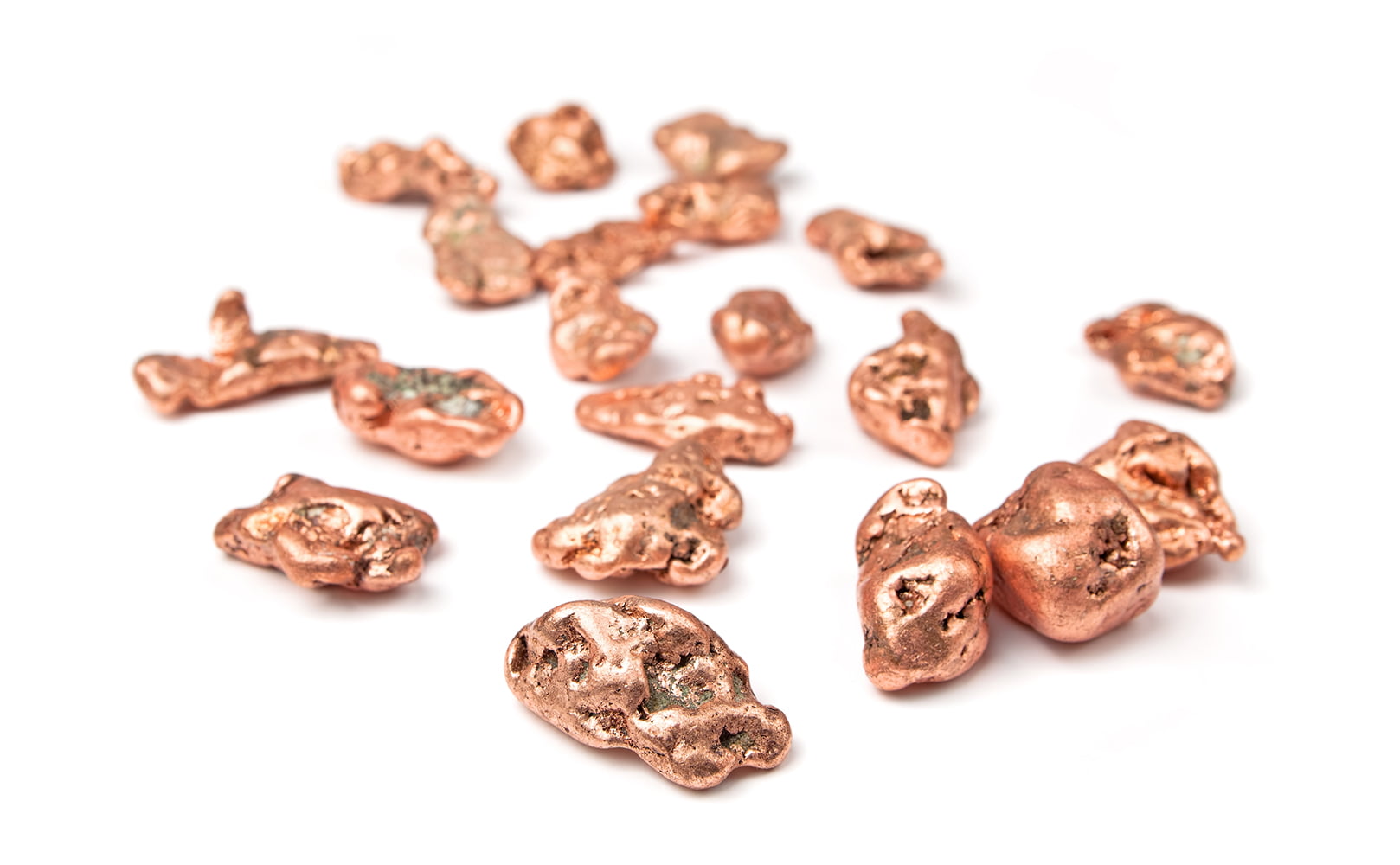Does Reverse Osmosis Remove Minerals from Water?
Written by: Gene Fitzgerald // Last Updated: Apr 7, 2023
This page may contain affiliate links. If you buy a product or service through such a link we earn a commission at no extra cost to you. Learn more.
When it comes to purifying water, there is hardly anything better available than reverse osmosis.
It’s a thorough process that effectively gets rid of many contaminants, leaving your water pure and fresh. Almost nothing gets left in.
But does that mean that reverse osmosis also remove beneficial minerals? Let’s find out!
Key Takeaways
- Reverse osmosis is very effective at removing minerals from water.
- You can compensate for the loss through remineralization.
Does Reverse Osmosis Remove Minerals from Water?
So, does reverse osmosis remove minerals from water?
Yes, reverse osmosis does remove minerals from water, and it does so very effectively. Even if it doesn’t remove them 100%, it still reduces their concentration to negligible amounts.
For some people, this might be a problem. If you’re used to getting some of your minerals from your water supply, you might have to compensate with other means, for example by taking supplements.
This doesn’t concern every person out there, though, as we usually get less than 5 percent of our daily mineral intake from drinking water (most comes from the food we eat). But it’s still something you should consider before investing in a reverse osmosis system for your home.
To What Percentage Does Reverse Osmosis Remove Minerals?
Many elements are removed with an efficiency of over 97% by using reverse osmosis water purification. When it comes to minerals in particular, you can be sure that pretty much all of them will be removed from your water. For most minerals, the reduction percentages are as high as 96% or even 98%.
How Does Reverse Osmosis Strip Out Minerals?
Minerals are removed the same way water contaminants are removed with the use of reverse osmosis. The fine pores of the RO membrane only allow water molecules (with some minor exceptions) to pass through.
This means that once contaminated water has passed through your reverse osmosis system, what’s left on the other side is pretty much only pure water and nothing else.
What Is Reverse Osmosis Water Purification and What Does It Do?
The way reverse osmosis works in general is by forcing water through a thin, semipermeable membrane at a high pressure. This forces water molecules to pass through the membrane. At the same time, the membrane rejects other elements that are too large to fit through its pores. Everything that can’t make it gets accumulated on the entry side of the membrane and ejected with wastewater.
This is a highly efficient process that has many advantages over other approaches to water purification. For example, it doesn’t require excessive amounts of power. All that’s needed is sufficient pressure in your plumbing system.
The Health Benefits of Minerals in Drinking Water
Most waters naturally contain various minerals. They usually make their way into our water supplies through rocks and soils as the water passes through them. Depending on where you live, you might have different amounts of certain minerals in your water. Here are the main health benefits associated with some of them.
Calcium
Calcium is important for bone and teeth growth and strength. It’s also involved in certain neurological processes. Having enough calcium means that your body is healthy enough to keep you active and moving all the time. At the same time, you’re less likely to face any long-term injuries. If you’re low on calcium, you would be more prone to bone fractures and other similar problems.
Magnesium
Magnesium is another important mineral for regulating your overall health. Without enough magnesium, your muscles and nerves will not function properly. You might also experience cardiovascular problems like high blood pressure. Low magnesium intake is also associated with deficiencies in other areas. For example, taking in too little magnesium can result in a decrease of the concentration of calcium and potassium in your body.
Sodium
Everybody needs sodium to survive. It’s used in muscle processes and helps regulate the balance of water and other elements in your body. We take in sodium from various sources. Some people already have diets that are very rich in sodium. In these cases, removing the mineral from water might not have too much of an impact. However, maintaining some amount of sodium in your water is generally a good idea.
Potassium
Potassium helps your body maintain an adequate amount of fluid inside its cells. It’s the direct counterpart of sodium, which maintains fluid levels outside of the cells. Potassium also plays a role in cardiovascular functions and muscle operation.
Iron
Iron helps your body grow and remain strong. One of its main uses is producing hemoglobin and myoglobin. Iron is also used for other bodily functions, for example producing certain hormones. It’s arguably one of the most important minerals in your diet. Too little iron can lead to various health issues, including fatigue, restlessness, headaches, and tremors.
Zinc
Zinc is mainly needed by your immune system and for various healing functions such as blood clotting and the healing of external injuries. It also affects certain senses like taste or smell. Zinc has been known to be highly important in the average diet for a while now. While you don’t need too much of it, failing to meet your body’s demands can quickly lead to problems.
Bicarbonate
You may already know bicarbonate under another name, baking soda. And while you don’t really need to take it as a separate supplement, it can help improve certain bodily functions. For example, it can make you perform better during exercising or it can relieve some annoying sensations like itching or heartburn.
Fluoride
Fluoride is mainly used for strengthening teeth. It’s known to improve teeth strength and promote healthy growth. The only downside to regular fluoride intake is that you have to be very careful about the amounts you’re consuming. While fluoride is not harmful by itself, too much of it can lead to some potential problems down the road.
Copper
Copper plays a role in your immune system. It helps maintain it at a healthy level, reducing the occurrence of various diseases and other health problems. Copper is also an effective antioxidant, which means that it helps cells operate optimally.
Phosphorus
You mainly need phosphorus for the growth of your bones and teeth. Phosphorus helps your body produce proteins which are used in various development and maintenance processes. Without enough phosphorus, you might notice issues related to the health of your bones and body tissues.
Iodine
Iodine has a very specific function. It’s used by the thyroid gland to produce a certain hormone named thyroxine. This hormone plays a major role in various functions of your body, and is critical for maintaining your overall health, especially with regards to the adequate utilization of proteins and fats by your organism.
Organic vs Inorganic Minerals
The main difference between organic and inorganic minerals is that inorganic ones never get bound to carbon, and are therefore never “alive”. Organic minerals are more easily absorbed by the body. That’s not to say that they are the only healthy ones. But if you want to prioritize a healthy diet regimen, you should probably focus on your intake of organic minerals.
Is RO Water Dead?
Some companies like to refer to reverse osmosis water as being “dead”. This is usually based on factors like its low mineral content. Don’t let the description fool you, though. There is nothing inherently bad about reverse osmosis water.
The only important factor to consider is to monitor your intake of minerals. Other than that, there is no reason to avoid drinking RO water if you’re concerned about your health. Quite the opposite: RO water is highly pure and doesn’t contain all the contaminants we find in so more of our drinking water supplies these days.
How to Remineralize RO Water
If you want to get the full benefits of reverse osmosis water without compromising your mineral intake, the best thing you can do is to remineralize it. This can be done in several ways. These are usually add-ons to your existing reverse osmosis filtration system.
Remineralization Filter
A remineralization filter, as the name implies, adds minerals to your water as an additional filtration stage. This must be done as a post-filter stage. The remineralization filter should be added at some point after the reverse osmosis membrane. Remineralization filters are a generally cheap and effective option for fixing the mineral balance of your water.
Mineral-Rich Salts
You can also use mineral-rich salts to enhance the mineral contents of your diet. An additional benefit to this approach is that it allows you to more precisely control the concentration.
Mineral Drops
There are also mineral drops available which you can use directly in your water. Those are good for bringing with you on the go. However, the main downside to this approach is that you have to manually add the compound to your water every time you’re about to drink. You can prepare small batches in advance, but that’s about as much as you can do.
Alkaline Water Pitcher
Finally, you can look into using an alkaline water pitcher. These filters increase the mineral content of water that passes through them. However, this might make your whole setup a bit too complicated. You have to first filter your water through your RO, then store it in the tank and finally run it through the alkaline water pitcher. This can be inconvenient in the long term. For this reason, we recommend using a remineralization filter if mineral contents are your primary concern.
If you have any thoughts about the question, does reverse osmosis water have minerals, please don’t hesitate to leave a comment below!
Information provided on BOS is for educational purposes only. The products and services we review may not be right for your individual circumstances.
We adhere to strict editorial guidelines. Rest assured, the opinions expressed have not been provided, reviewed, or otherwise endorsed by our partners – they are unbiased, independent, and the author’s alone. Our licensed experts fact-check all content for accuracy. It is accurate as of the date posted and to the best of our knowledge.



